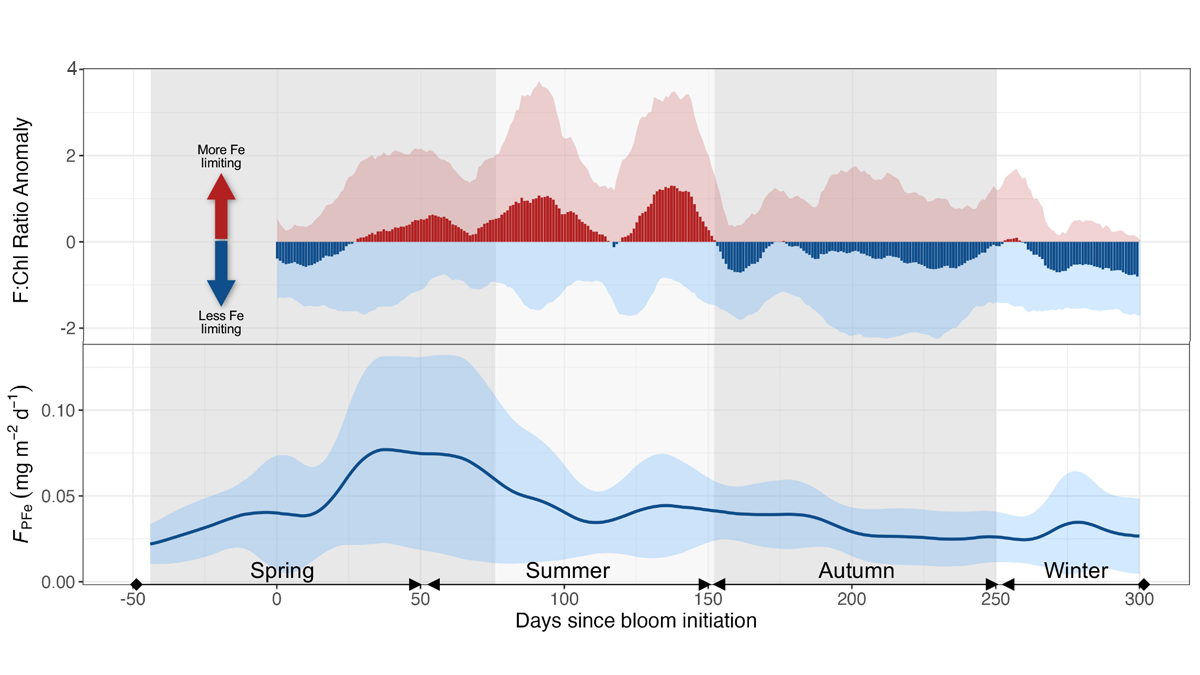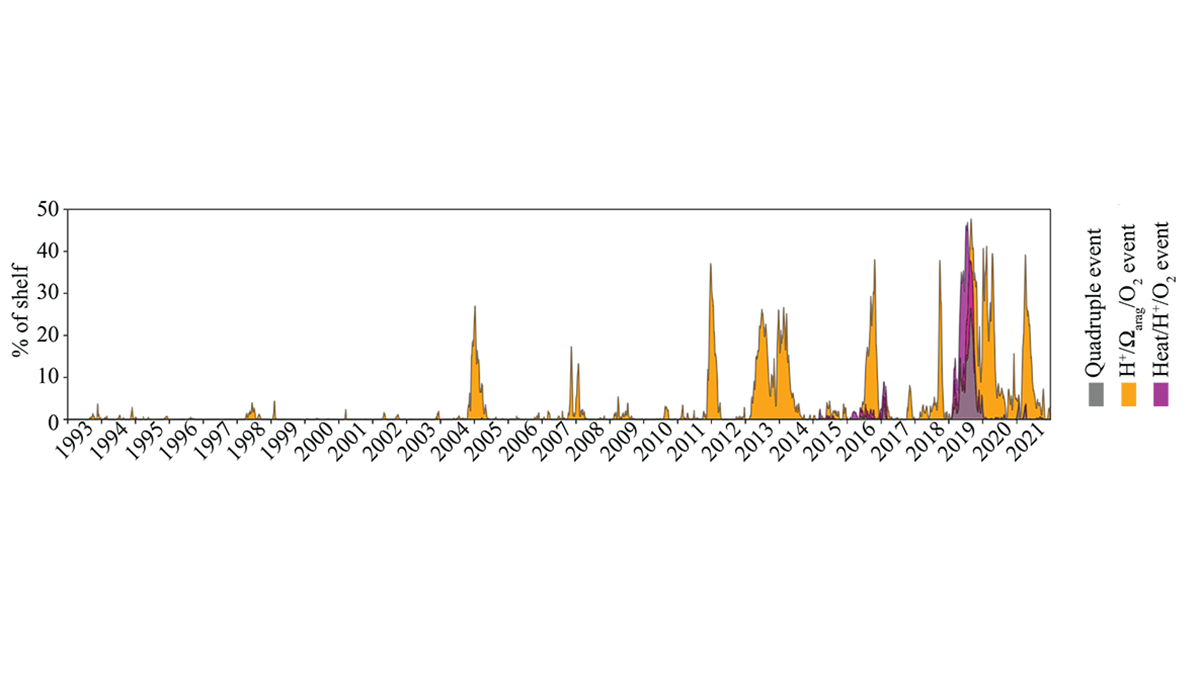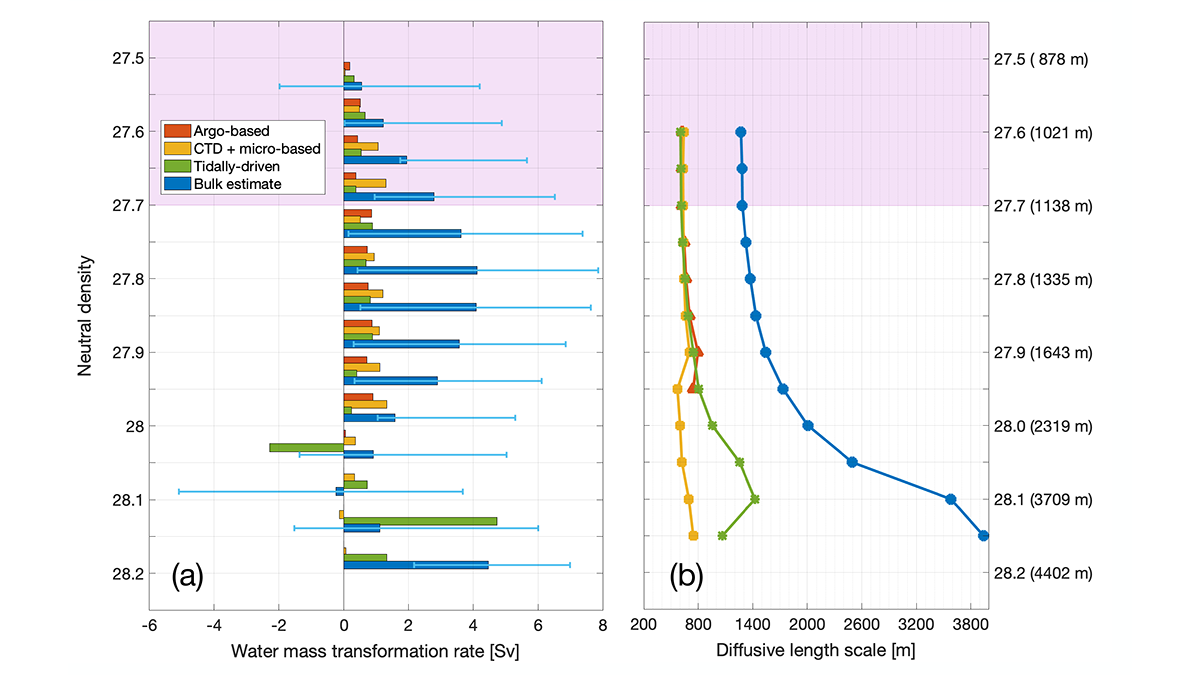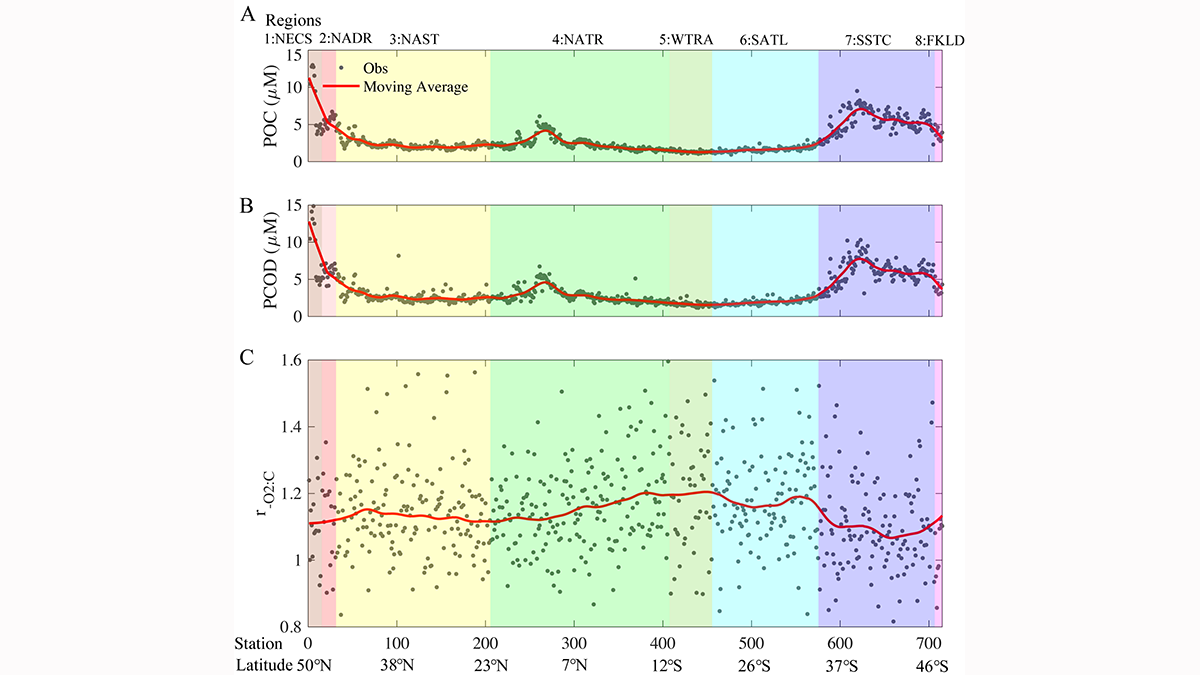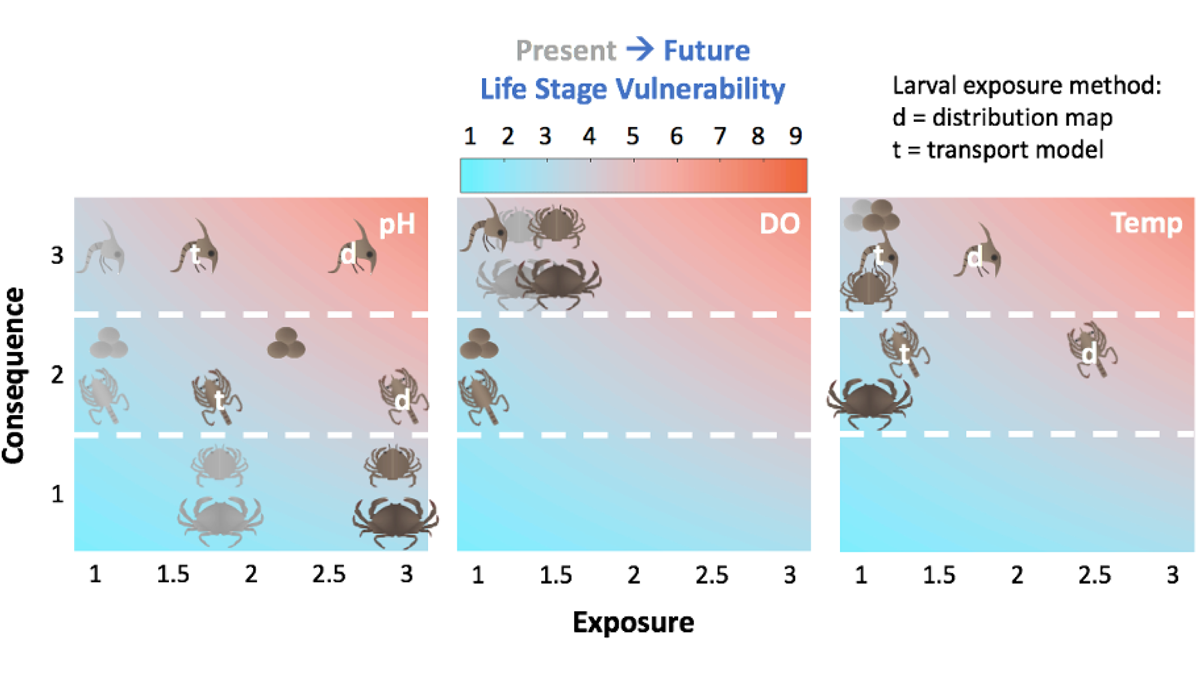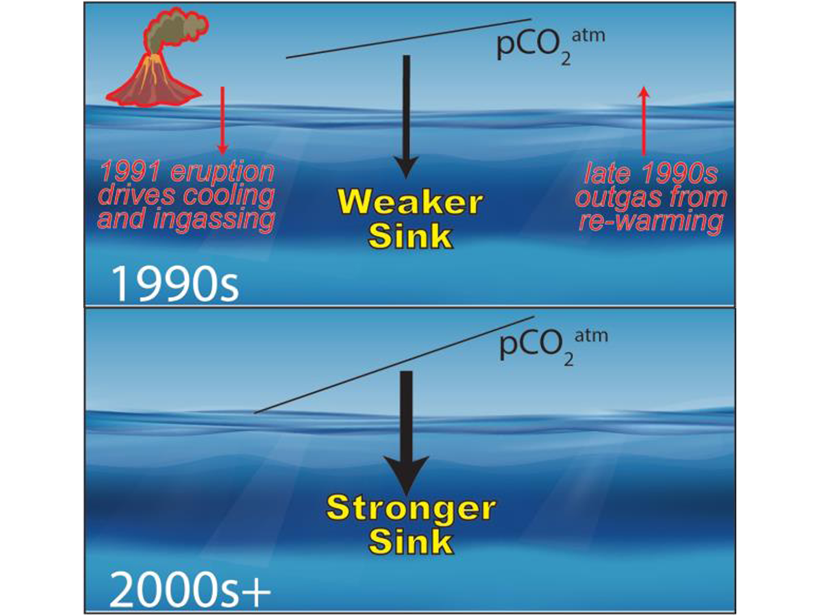Long-term monitoring at a site in the subantarctic region south of Australia combined with ship-based observations reveals three distinct phases between cycles of phytoplankton productivity and dissolved iron.
Eileen Hofmann
Editor, AGU Advances
Compound Extreme Events Threaten Marine Ecosystems
Short-term extreme marine heat wave events superimposed on stressors from longer-term climate change produce compound extreme events that impact the Gulf of Alaska ecosystem.
Diapycnal Mixing and the Atlantic Ocean Overturning Circulation
Quantitative observation-based estimates highlight the contribution of diapycnal mixing to the Atlantic Meridional Overturning Circulation, water mass formation, and tracer transfers and pathways.
Respiration Quotient Variability and Ocean Oxygen Levels
Respiration quotients in the Atlantic and Pacific Oceans reflect different water temperature, nutrient stress and phytoplankton community structure, important for regional carbon and oxygen cycling.
Reef-Building Corals at Risk from Ocean Warming, Acidification
Physiological limitations on regulating internal chemistry restricts corals’ ability to deal with ocean acidification and warming, thereby reducing resilience to continued environmental change.
Dungeness Crab at Risk from Multiple Climate-Related Stressors
The lucrative Dungeness crab fishery is at risk because of the combined effects of projected climate-related habitat changes: lower oxygen, warming temperature, and increased acidity.
Sea-Level Science Coordination: A U.S. and Global Concern
Sea-level rise is happening. There are basic science needs for supporting decision making for sea-level adaptation efforts and challenges to making information available to stakeholders.
2020 AGU Election Statistics
AGU’s Leadership Development/Governance Committee recaps the timing, participation, and other details of the organization’s recently completed 2020 leadership election.
What the Upper Ocean Looks Like During a Hurricane and Why It Matters
High-resolution measurements reveal the structure of the upper ocean under a hurricane and its feedback on storm intensity.
Eruption and Emissions Take Credit for Ocean Carbon Sink Changes
A new model explains why the ocean’s capacity to take up carbon was reduced on a decadal scale, by accounting for reduced pCO2 emissions and ocean state changes due to the eruption of Mt. Pinatubo.

